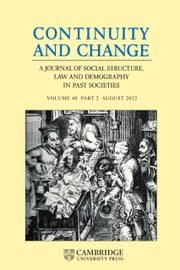Article contents
Obligations and expectations: renegotiating pensions in the Russian Federation
Published online by Cambridge University Press: 01 August 1998
Abstract
Changing established systems of government entitlement is a thorny proposition, even for popular states with sturdy holds on the reigns of power. The Russian Federation, in the throes of a severe economic downturn, extreme political instability and social crisis, has nonetheless altered the official stance toward forms of entitlement from the previous regime. Benefits cut from the ‘social contract’ have included guaranteed employment, free post-secondary education and access to state-subsidized apartments, in attempts to redefine the lines of authority and responsibility between citizens and the state. Other lines of responsibility appear sacrosanct. The Soviet pension system, more specifically the old age and service pensions, remains in place, but with extreme delays in payment, poor indexing to the cost of living and high levels of tax evasion.
In this article I examine the ways in which both the legacy of Soviet pension policies and post-1991 economic and social trends have constrained policy options concerning pension reform, particularly in reference to old age pensions, and prevented a serious re-evaluation of pension provision. The Russian Federation government inherited a pension system ill-equipped to cope with its aging population. However, the previous pension system did deliver payments on a regular basis to nearly one in five citizens before 1991. Unlike other areas of often unfulfillable social services guarantees (housing for families, quality health care and free access to higher education), the pension system represented a Soviet social programme that provided consistent direct assistance to a large proportion of the population. Pension payments were an expected entitlement.
- Type
- Research Article
- Information
- Copyright
- © 1998 Cambridge University Press
- 6
- Cited by


